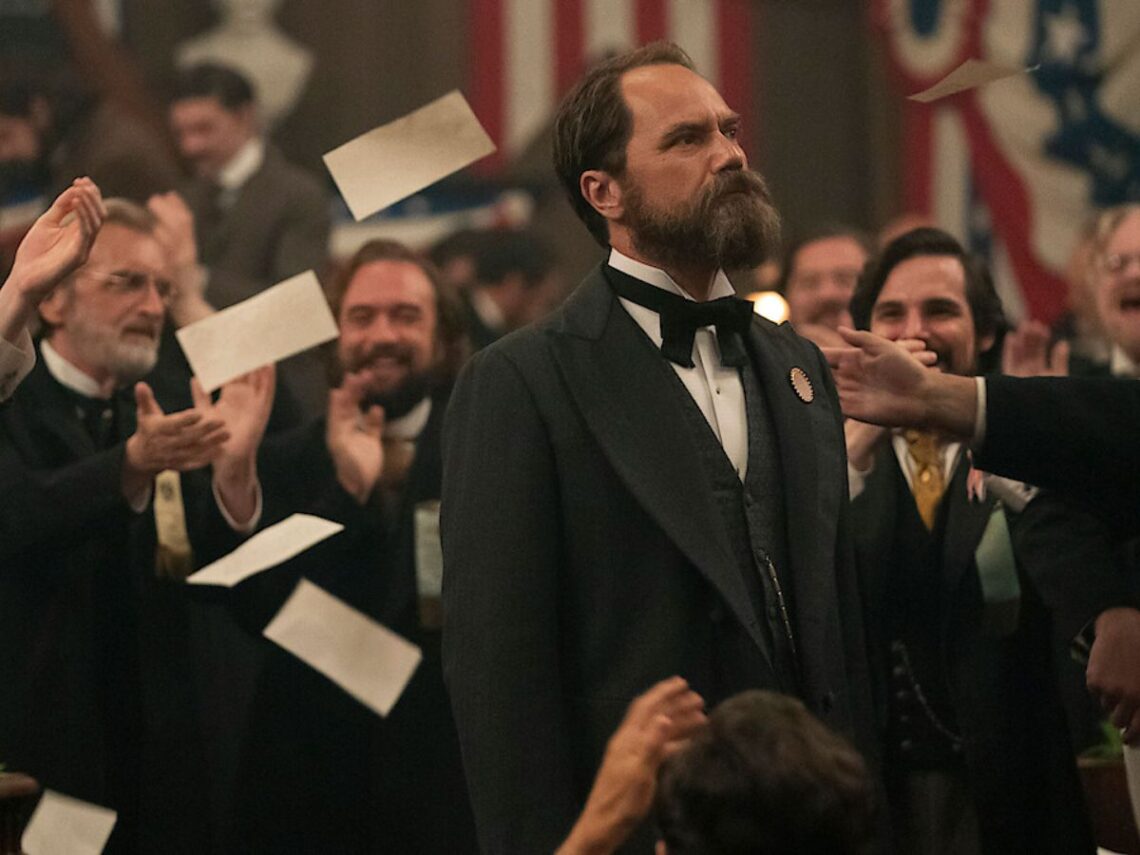
‘Death by Lightning’ ending explained: What the final scenes really say
Alright, so if you have finished Death by Lightning, you know that last episode was totally smashing, and not because it was loud or dramatic, but because of how quiet it was. The show doesn’t end with the gunshot; it ends with the aftermath.
We see that Garfield is gone, Guiteau is in prison, and everyone left behind has to live with what’s been done.
The first scene and the last one mirror each other. These were the scenes that preserved the brain in the modern-day lab, and Lucretia sitting at the table her husband built. It’s such a simple contrast: one man remembered as an exhibit, the other remembered through love. That’s what the show’s saying without actually saying it. The gist is: fame fades, but decency sticks.
And that prison scene between Crete and Guiteau? That is the one that gutted most of us. She doesn’t scream or cry. She just tells him the one thing he never wanted to hear: that his name will mean nothing. And you can see it hit him. This man has built his entire identity around being noticed, and in that moment, he realises he won’t even get that.
The truth about Garfield’s death
What makes it even sadder is that Guiteau didn’t technically kill Garfield. Not immediately, anyway. The show really leans into that with the doctors, especially Dr Bliss, refusing to use antiseptic procedures even when other physicians begged him to. You can call it a horrible mix of arrogance and ignorance. They kept probing the wound until infection did what the bullet hadn’t.
You watch it and just want to yell at the screen. You know in those moments that it should not have happened, yet there is nothing you can do about it. That’s why the title quote hits so hard near the end, which says, “Assassination can be no more guarded against than death by lightning.” It isn’t just poetic irony.
Chester Arthur’s surprising turn
Then there is Arthur. Honestly, his arc might be our favourite part of the whole ending. He starts off as a total political puppet who is loyal to the wrong people, and then Garfield dies, and suddenly, the weight of it hits him. He becomes president by accident, and, weirdly, that’s what saves him. You can see Garfield’s influence still hanging over him in every scene.
By the time Arthur pushes for civil service reform, it doesn’t feel like redemption for Garfield. Instead, it feels like growth for himself. He finally acts like the man Garfield believed he could be. The show doesn’t make a big moment out of it. If anything, it is just quiet conviction, which lands harder.
Why that final shot matters so much
The ending circles back to Lucretia, sitting at that table, surrounded by family but still so alone. But don’t confuse it for sentimental, the better word would be grounded. You see, she is the emotional anchor of the whole thing. The series lets her have the last word without saying a single thing, which says a lot. It’s her moment, not Garfield’s or Guiteau’s.
And that preserved brain we saw earlier? It comes full circle. Guiteau wanted to be remembered, and he was, just not how he wanted. He is a specimen in a jar, nothing more. It’s poetic justice. He gets studied, while Garfield gets remembered.
What does it all mean
So yeah, the ending isn’t about revenge or justice. It’s about legacy: who gets to be remembered, and why. Guiteau’s name sits on a label no one reads. Garfield’s name lives in a law Arthur passed because he finally decided to do the right thing. And Crete, the quiet one, outlasts them all.
That last image says everything without needing a word. A man built a table; the woman he loved still sits at it. One built something real. The other built nothing. That’s the difference between being remembered and being studied.